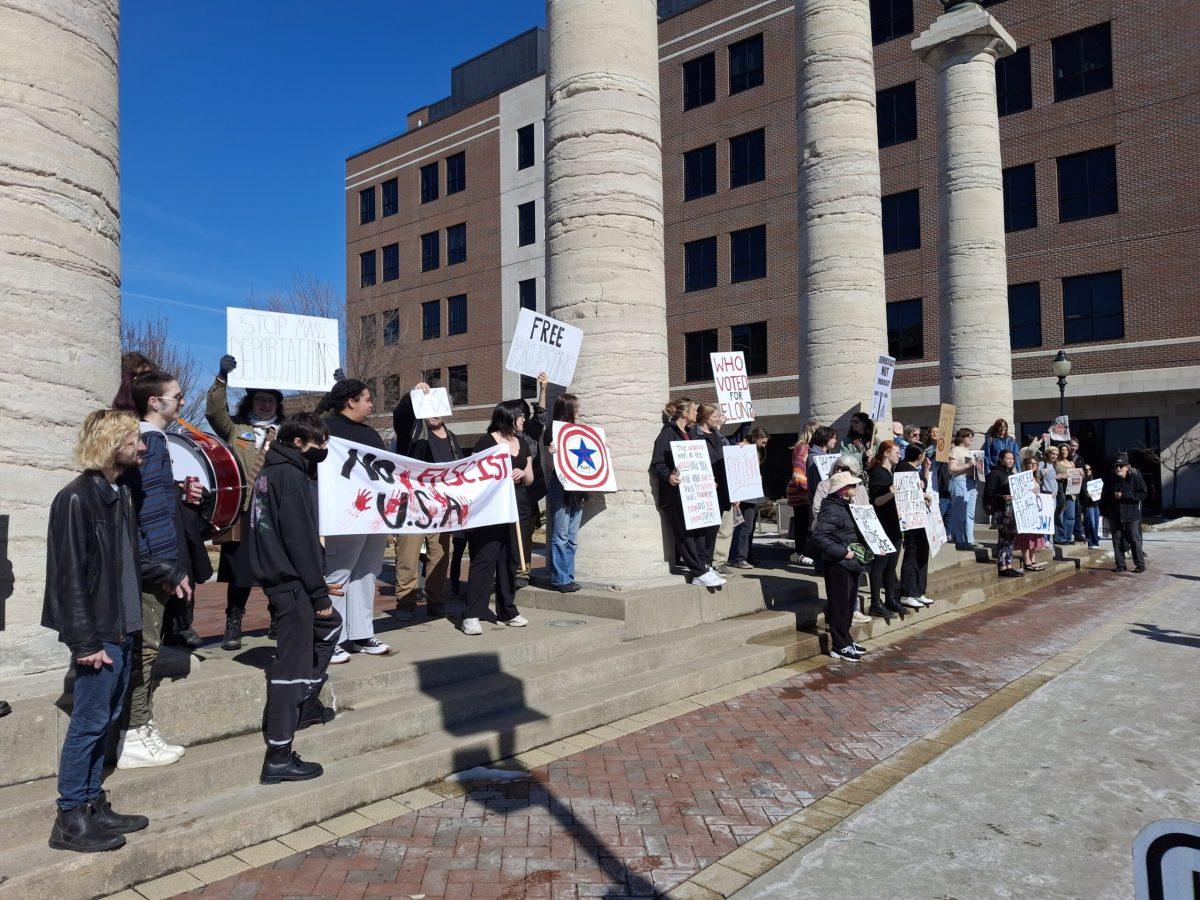The Missouri Theatre played a free preview screening for a new student-made documentary called “Keep the Cameras Rolling: The Pedro Zamora Way” on Sept. 16.
The film was a collaborative effort between students at the Jonathan B. Murray Center for Documentary Journalism, the Department of Political Science and the School of Music. It officially premieres worldwide on Oct. 3 as part of the Out on Film festival in Atlanta.
The film focuses on MTV’s reality TV series “The Real World,” where people from different backgrounds share a residence for several months in hopes of settling their cultural differences and growing as people. More specifically, the documentary tells the story of Pedro Zamora, a young gay man living with HIV/AIDS. Zamora was cast in the show’s third season in 1994, and passed away nine months after filming started.
“Keep the Cameras Rolling” was originally political science professor Bill Horner’s idea. Horner, who served as co-director for the film, researches the impact of pop culture on politics. Horner said he was drawn to Zamora’s story since he watched “The Real World” as a graduate student.
“I was working on my master’s thesis [in 1994], and it was about World AIDS Day and the impact of World AIDS Day,” Horner said. “As I was working on my research and [season three] was going on, I thought, ‘Wow, this is the exact kind of thing that will impact public opinion.’ So I had always wanted to get back to that in some way.”
In 2017, Horner suggested making a documentary about Zamora to Stacey Woelfel, the Murray Center’s director. Woelfel, who became the other co-director, said the documentary began an interdisciplinary collaboration between students from different majors. The production of the film spanned multiple semesters until they reached their finished product.
“Bill came with the idea — I was happy to get on board,” Woelfel said. “We put together a team of political science students and journalism students, adding eventually students in the School of Music as well because the original music was composed by a master student here, and performed by student musicians.”
“Keep the Cameras Rolling” explores public opinions toward marriage equality and the AIDS epidemic in the ‘90s, and also how Zamora’s legacy helped draw national attention toward those issues.
Horner said most students working on the film had never heard of Zamora before, and had grown up in a time with more tolerance toward marriage equality in the U.S. compared to previous decades.
“There are very few issues in public policy in the United States where opinion changed as quickly as opinion changed about same-sex marriage,” Horner said. “I think for [the students], seeing what had to happen to make things so much better was a really valuable historical lesson. It was a lesson in the power of a person to drive change.”
Sophomore Jackson Estwanick attended the preview screening and said he enjoyed learning about Zamora, whom he had never heard of before. Estwanick said the film was reminiscent of issues still relevant in society and thinks it is important for others his age to learn about Zamora.
“It was an amazing story that I actually later found out my parents were familiar with, so I know it was a pretty big deal to people who are older than us,” Estwanick said. “Clearly it is still a powerful story today, so I’m glad that they revived it and put it back into our public conscience.”
While Woelfel said shedding light on LGBTQ issues and HIV/AIDS was one of the film’s major intentions, the team who worked on the film also wanted “Keep the Cameras Rolling” to serve as a celebration of Zamora’s life and legacy as an activist and educator, despite the circumstances of his illness and death in 1994.
“Even though it’s about somebody who is sick and dying, it’s really an uplifting film that people feel good about,” Woelfel said. “This is a political story, but it has a reasonably happy ending. You’re going to meet a character that you might never have heard of, who is someone people should know, so we’re happy that we get to bring his name and his story to a lot of people who didn’t get a chance to hear it before.”
Edited by Emmet Jamieson | [email protected]













